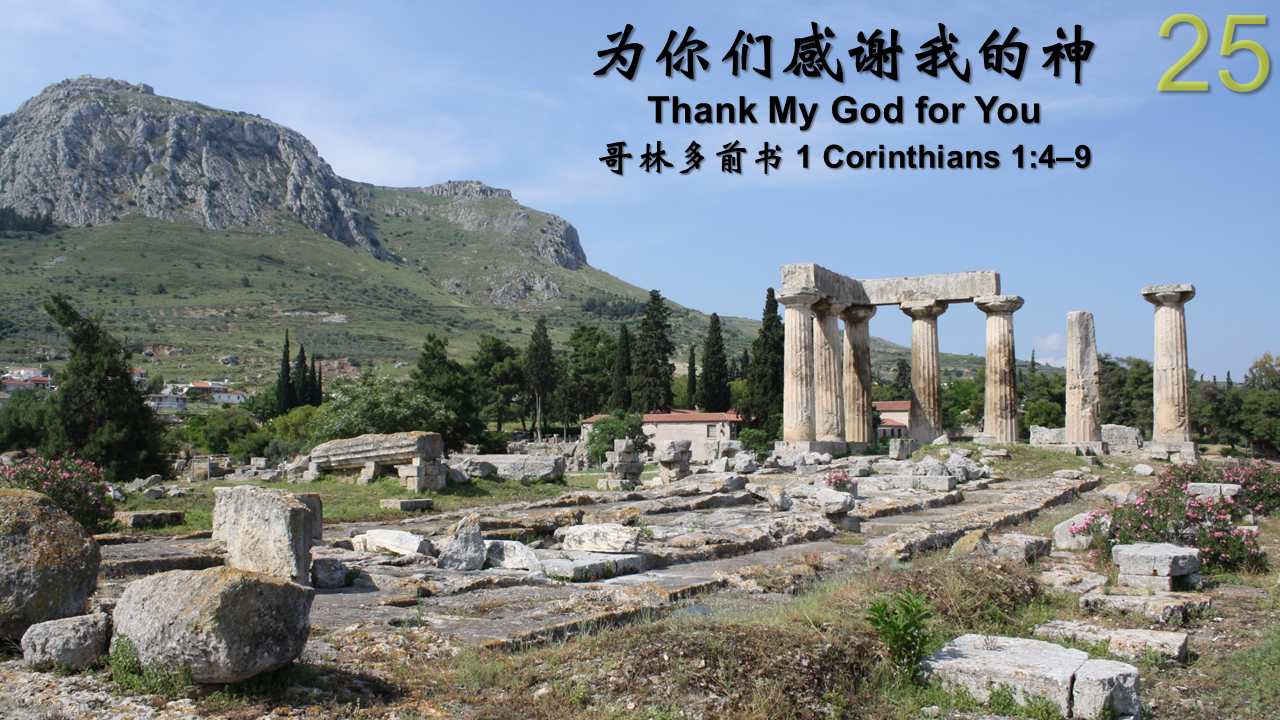为你们感谢我的神 Thank My God for You
哥林多前书 1 Corinthians 1:4–9
Remember these points
I put these points at the top of my sermon-prep template to remind myself every week:
- Show that main point of passage relates to Jesus and his saving work
- (1 Cor 1:18) A truly gospel-centred message will not be acceptable in a synagogue or mosque
- Did I proclaim the gospel as the headline news of the sermon, rather than as a “by the way…”?
- Unbelievers are called to repent, believe, and be saved
- Believers are encouraged to abandon their old self, renew their minds, put on the new self in Christ
- Preach simple sermons, so that God’s people can see Christ more clearly and love him more dearly
News
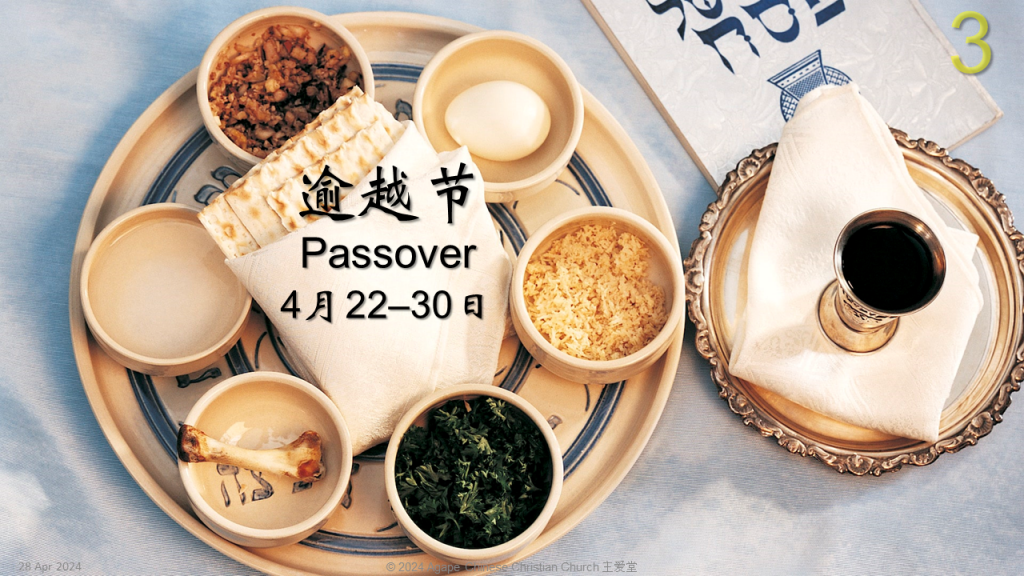
This year’s Passover will end soon on Tuesday 30 Apr.

2024 Covenant of Love Marriage Workshop
Fri & Mon, 18 and 20 May (Victoria Day long-weekend).
Hook

https://patch.com/michigan/clawson/encouraging-etiquette-and-raising-respectful-children
Are You Thankful?
When someone holds open the door for you, do you say thank you?
When you hold the door for someone (or give up your seat to someone on the bus or metro), and the person doesn’t say “Thank you” or even looks at you, how would you feel?
Ever had such experiences?
Why do you think people today seem so reluctant to say thanks?
Likely because of a self-centred attitude, an attitude popular with today’s culture.
Today we look at how Paul is thankful. Not only that, we need to see what he’s thankful for, and to whom he is directing his thanks.
Passage
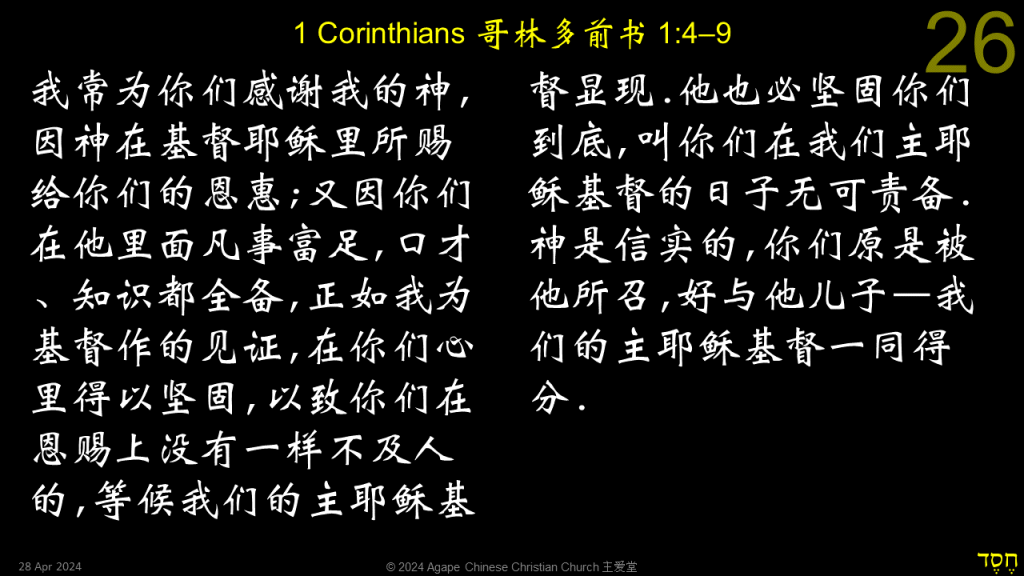

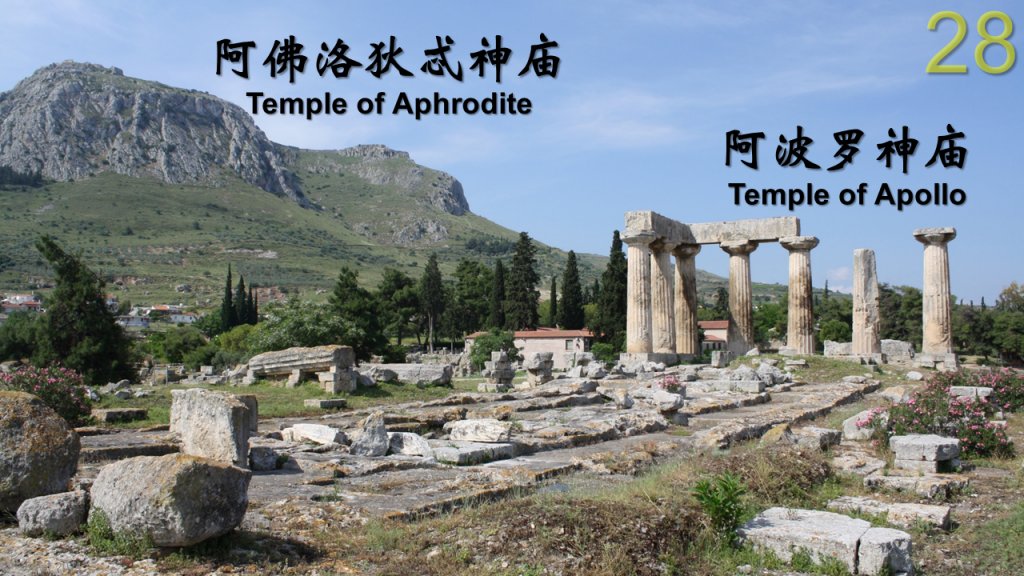
Outline
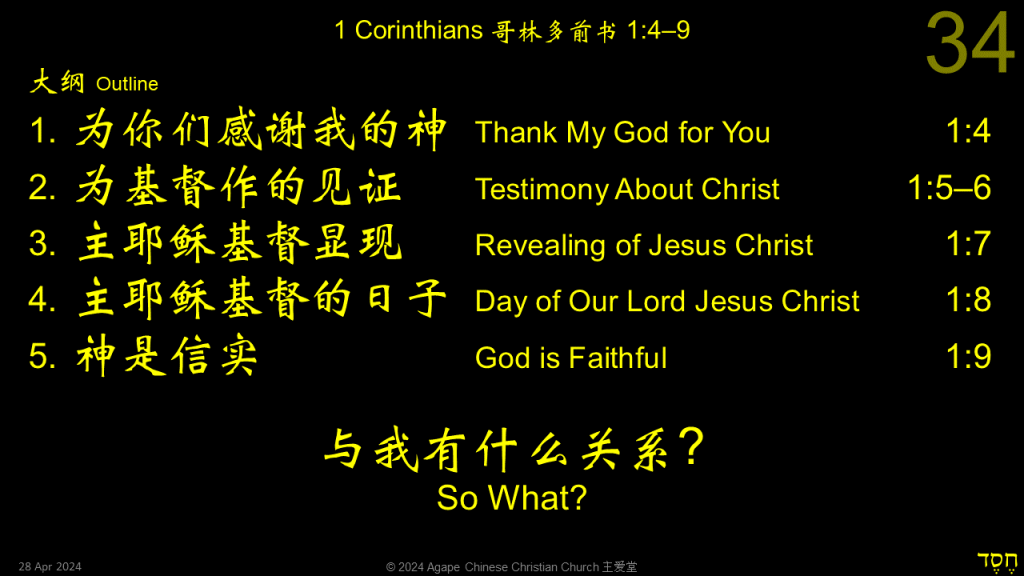
Section 1 为你们感谢我的神 Thank My God for You 1:4
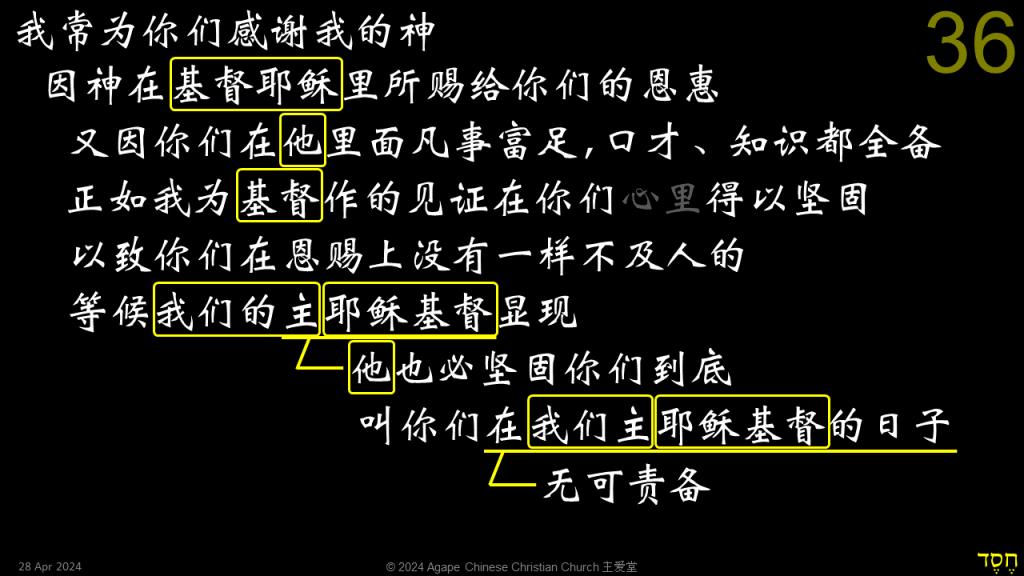
This is vv. 4–8, it’s one long sentence in Greek.
Most English and Chinese translations break it up into at least 2 or 3 sentences.
What words do you see repeated throughout?
Jesus Christ is emphasised throughout.
In every verse from 4–8, either the name Jesus Christ or the pronoun appears in every verse.
Most of verbs are passive: The actor is God or Jesus Christ, NOT the Corinthian Christians, not us.
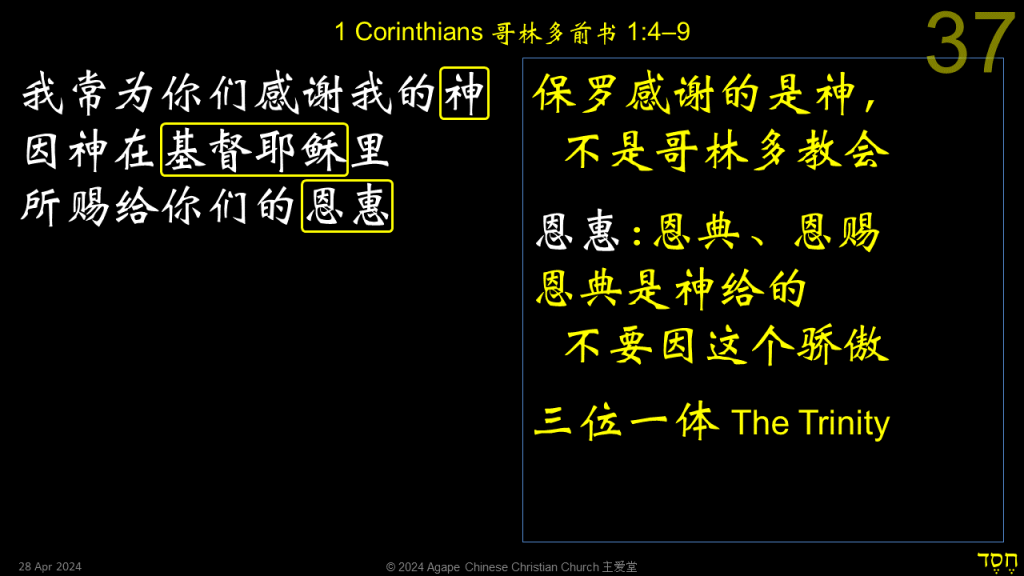
Paul gives thanks to God, NOT to the Corinthian church.
Paul thanks God for the grace given to Corinth’s church.
“Grace”: can be God’s mercy towards sinners, but for Paul, often associated with “gifts,” as in spiritual gifts.
This grace, the spiritual gifts, are given by God, they can’t boast about them.
Boasting over their spiritual gifts is one of Corinth’s problems.
We can see the Trinity here.
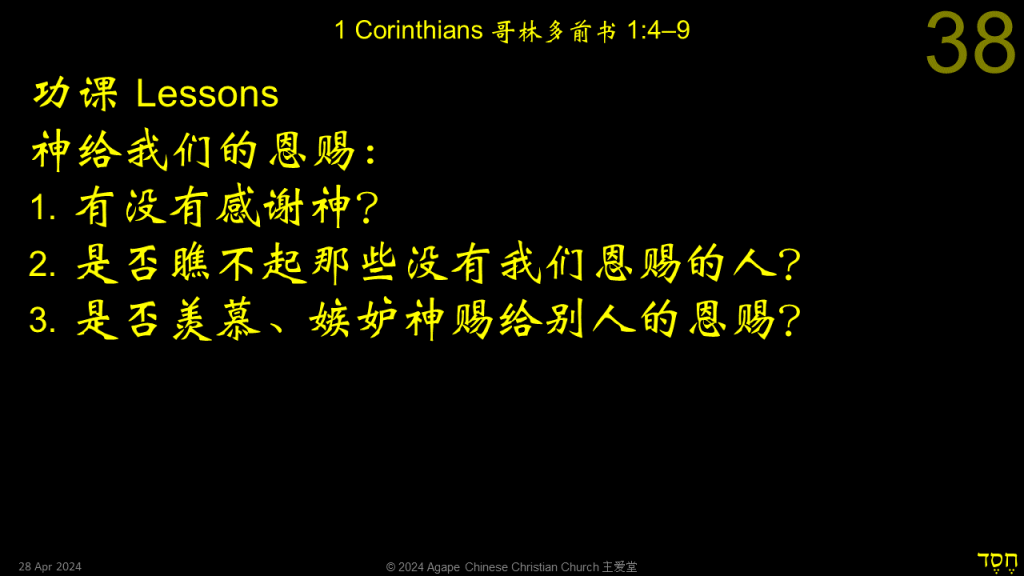
Lessons
How do we treat the gifts that God gave us?
- Do we give thanks to God?
- Do we look down on others who don’t have our gifts?
- Do we envy others for God’s gifts?
Section 2 1.为基督作的见证 Testimony About Christ 1:5–6
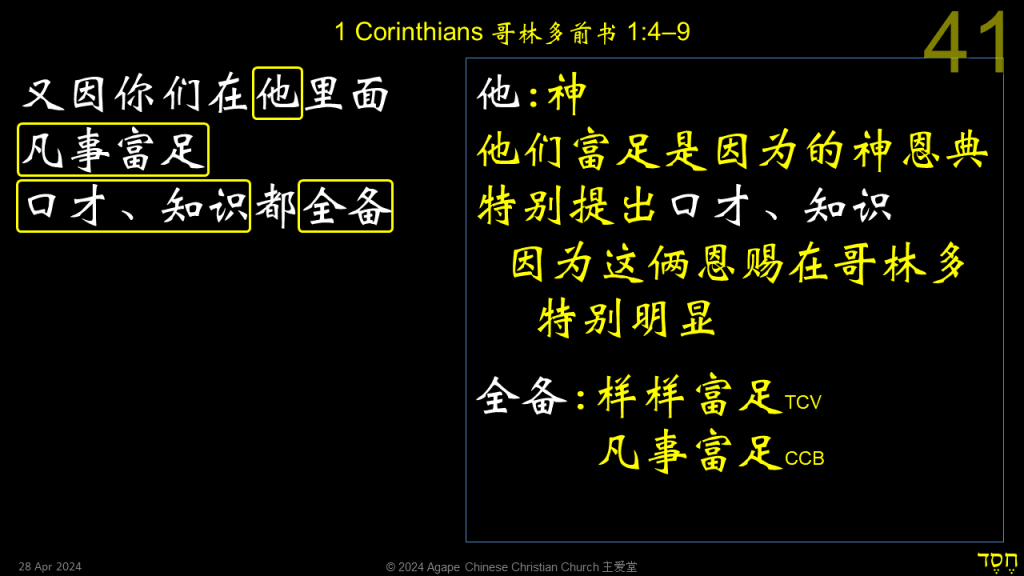
1 Cor 1:5–6
“In him.” The “him” refers to God.
They are enriched because of God’s grace.
Especially in the gifts of speech and knowledge.
Paul singled out these two gifts likely because they were particularly evident in Corinth.
“In every way” they were blessed with gifts of the Holy Spirit.
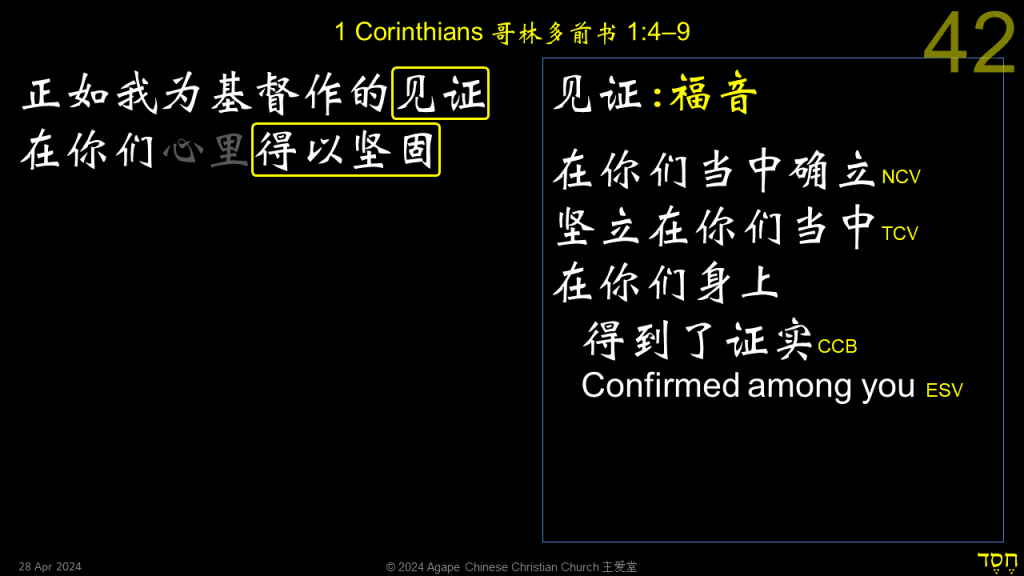
Testimony about Christ. This is the gospel, the good news of salvation that is available to us because of Christ’s death on the cross.
“Confirmed among you” In CUV, it’s not as clear.

Lessons
- God’s grace enables us to be enriched in every way.
- We are rich in Jesus Christ;
Don’t ever forget to give thanks, and never be prideful because of your gift(s). - Their gifts (and ours) confirmed the gospel: Confirmed the presence of the Holy Spirit.
Section 3 主耶稣基督显现 Revealing of Jesus Christ 1:7

They’re not lacking in any gifts.
They see these gifts (talents) as the important stuff in and of themselves. A very bad attitude.
Many Christians do the same today.
“As you wait”: The verb actually is “eagerly waiting,” so something like in great anticipation.
Do we look forward to Christ’s return, or are we quite comfortable in this world?
Section 4 主耶稣基督的日子 Day of Our Lord Jesus Christ 1:8
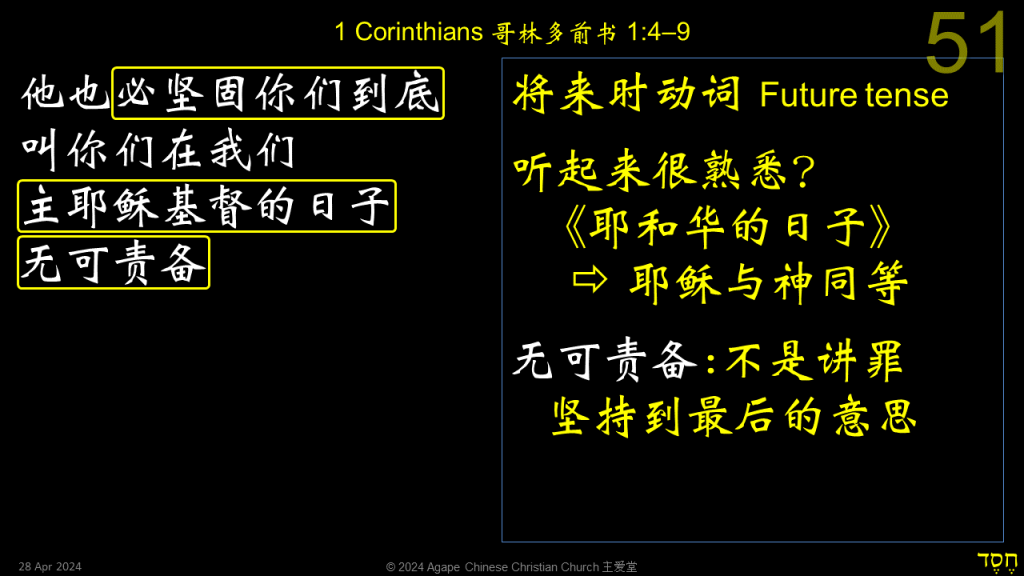
Now we move into future tense, expectation of things to come.
“The day of our Lord Jesus Christ” Sounds familiar? In OT, we see quite often, “The day of the LORD (YHWH).”
So Paul is equating Jesus with God.
“Guiltless” should probably not be understood as sinless, but as being able to persevere until the end.
It’s God who will allow us to persevere.

Lessons
- We look eagerly to the future, to Christ’s return.
- God sustained the Corinthian church (despite all their problems),
he will also sustain churches today. - Until the return of Christ.
Section 5 神是信实 God is Faithful 1:9
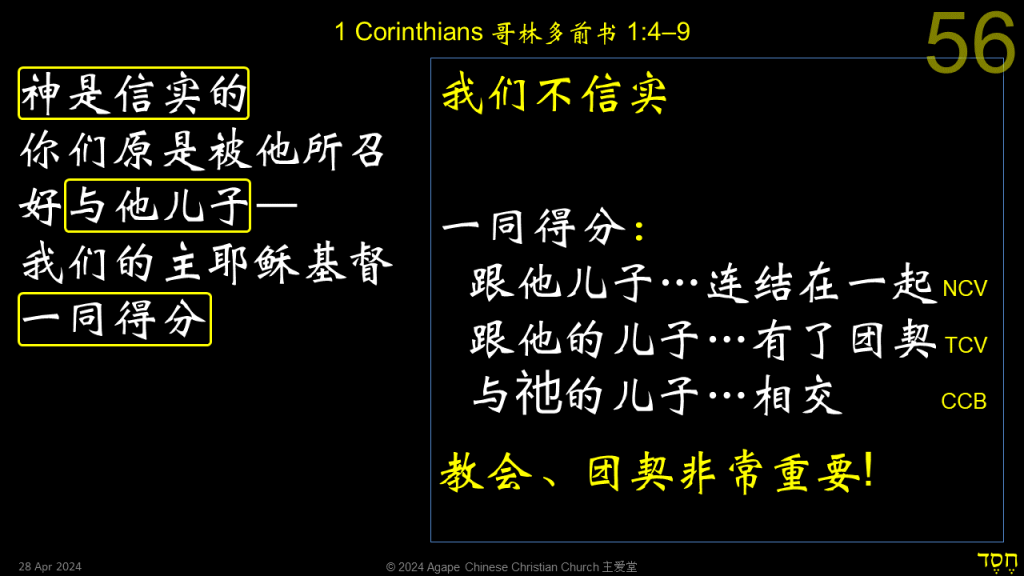
We are not faithful, we evidenced in the entire OT and NT.
But God is faithful.
We are called into fellowship with his Son Jesus Christ.
Here we see also that Jesus is the Son of God, and earlier that he is equated with God.
Being together in a church, to have fellowship with one another, is extremely important.
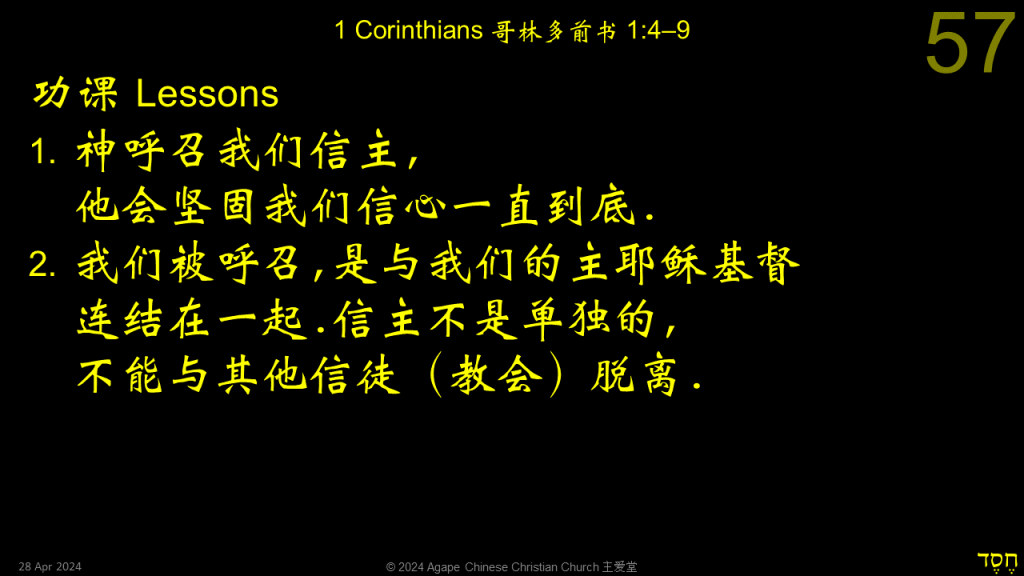
Lessons
- God (Holy Spirit) called us to faith in Christ,
he will sustain our faith until the end. - We are called to join together with Jesus Christ.
Our faith is not one where we are alone, as individuals.
We need to be in a church, with other brothers and sisters.
与我有什么关系? So What?

- We need to be thankful: Thank God, thank brothers & sisters.
Write a little note to say “Thank you…!” - The Corinthian church’s past, present, and future have been confirmed, declared, secured, enriched, and sustained in Christ.
The same for churches today! - The God who called us to faith by his grace, will empower us to persevere until the end.
This often comes up with the question of “Am I saved?” - To be in fellowship with our Lord, with each other. Are you willing to pursue that?

